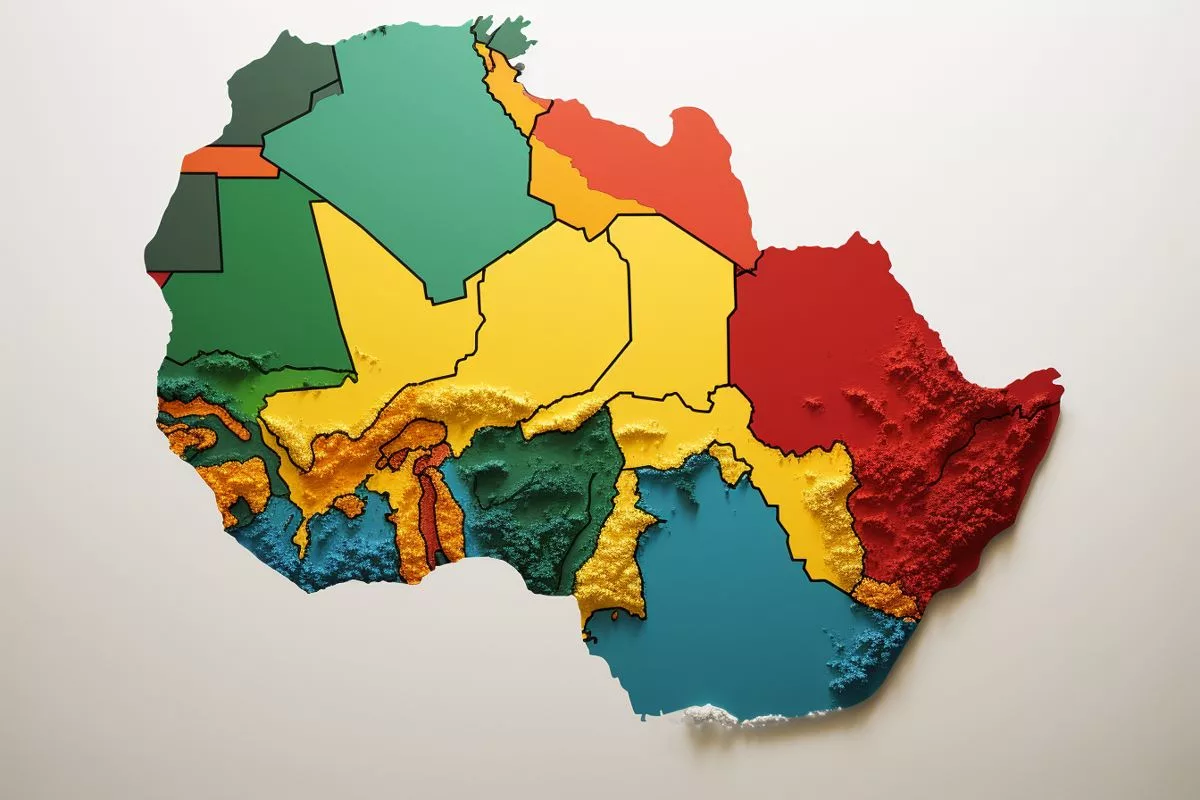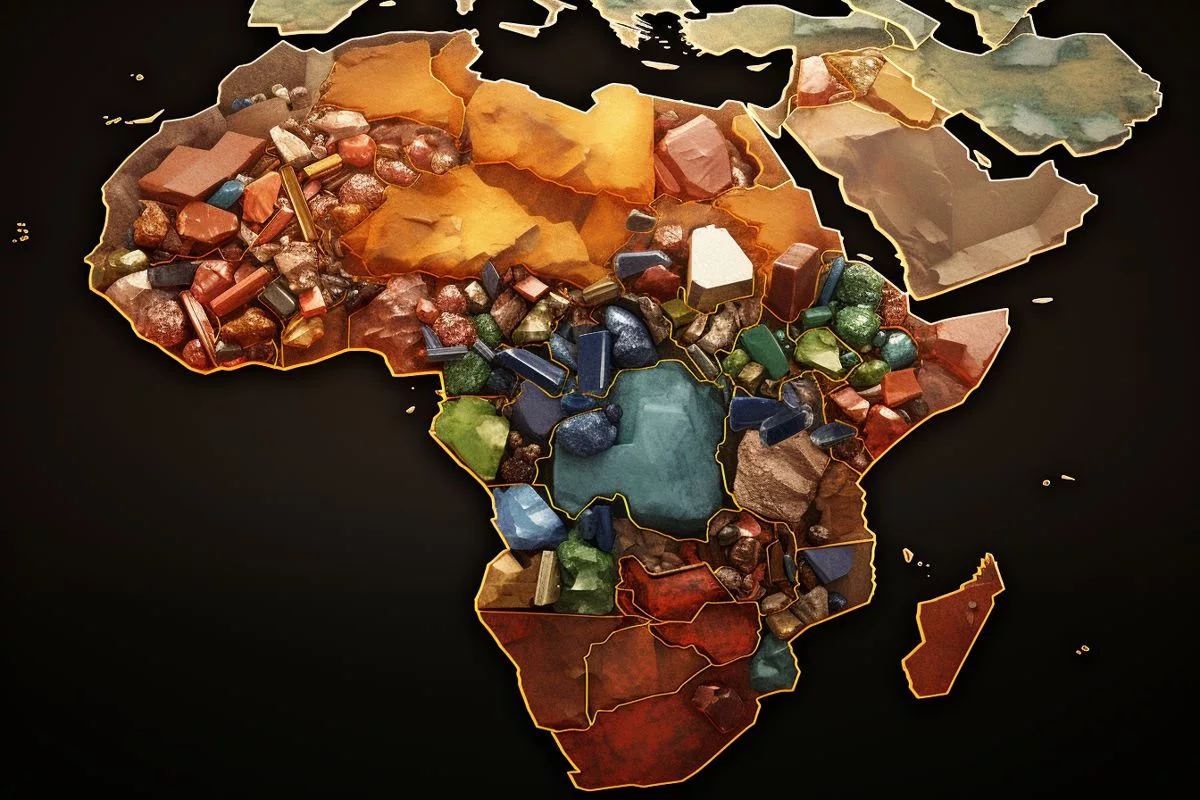The Independent Electoral Commission (IEC) has presented the Atlas of Results for South Africa’s 2019 elections to Parliament. The Atlas is a comprehensive graphic collection of data and statistics that provides a visual representation of election outcomes, voter demographics, and political trends over time, making it a crucial resource for political analysts, researchers, and policymakers. The IEC’s commitment to transparency and accuracy is clear and the Atlas serves as both an informative resource and a catalyst for further research into South Africa’s electoral process.
What is the Atlas of Results for South Africa’s 2019 Elections?
The Atlas of Results is a comprehensive graphic collection of data and statistics presented by the Independent Electoral Commission (IEC) to Parliament. It provides a visual representation of election outcomes, voter demographics, and political trends over time, making it a crucial resource for political analysts, researchers, and policymakers. The IEC’s commitment to transparency and accuracy is clear, and the Atlas serves as both an informative resource and a catalyst for further research into South Africa’s electoral process.
Unveiling the Atlas of Results for the 2019 Elections
The Independent Electoral Commission (IEC) made a significant stride by presenting the Atlas of Results for the 2019 National and Provincial Elections to Parliament on November 9, 2023. This prestigious occasion, open to media members, features an extensive graphic collection of data and statistics pertaining to the 2019 elections, alongside comparative information from past elections.
The Atlas of Results acts as a vital resource for grasping South Africa’s political landscape and the progress achieved throughout its democratic history. It not only provides a visual depiction of election outcomes but also delves into the complexities of voter demographics and the development of political trends over time.
The IEC’s commitment to transparency and accuracy is clear in the thorough preparation of this all-encompassing document, which embodies the core of the nation’s electoral process. By offering a detailed examination of election results, the Atlas serves as a crucial instrument for political analysts, researchers, and policymakers, allowing them to make well-informed decisions and devise strategic plans for the future.
Analyzing South Africa’s Political Landscape and Key Influencers
The IEC’s initiative demonstrates South Africa’s dedication to upholding a strong and transparent democratic process, essential for a prosperous and flourishing society. Presenting the Atlas of Results emphasizes the significance of data-driven decision-making and the necessity for ongoing evaluation of electoral processes to guarantee their effectiveness and integrity.
Examining the Atlas reveals that South Africa’s political landscape is influenced by numerous factors that contribute to the shifting power dynamics within the country. The document’s rich visual representation of data offers insights into the patterns and trends that have molded the nation’s political history and guided its path.
A notable feature of the Atlas is its capacity to assess the impact of various social, economic, and political factors on the electoral process. Analyzing the data reveals that elements such as population growth, urbanization, and socio-economic disparities have significantly influenced the outcomes of elections throughout the years.
This thorough analysis underscores the importance of understanding the complex interplay of various factors that affect the electoral landscape and the necessity for policymakers to take these dynamics into account when developing strategies for future elections. The Atlas of Results acts as both an informative resource and a catalyst for further research into the intricate workings of South Africa’s democratic process.
Transparency and Accountability: The IEC’s Commitment
Presenting the Atlas of Results to Parliament exemplifies the IEC’s dedication to cultivating a transparent and responsible electoral process. By inviting media members to attend this event, the IEC promotes open dialogue and discussion on the state of South Africa’s democracy and the lessons that can be learned from the Atlas’s findings.
The 2019 National and Provincial Elections marked a critical juncture in South Africa’s political history, and the Atlas of Results serves as a living testament to the democratic principles and values upheld by the nation. As South Africa continues to develop and grow as a country, the insights derived from this comprehensive document will undoubtedly prove invaluable in guiding the nation toward a brighter and more prosperous future.
In conclusion, presenting the Atlas of Results for the 2019 National and Provincial Elections to Parliament signifies a landmark moment in the ongoing pursuit of transparency, accountability, and data-driven decision-making in South Africa’s electoral process. The comprehensive nature of the Atlas reflects the commitment of the IEC to provide an accurate, in-depth analysis of the nation’s political landscape, fostering a better understanding of the factors that shape its democratic system. As South Africa continues on its journey toward a more equitable and inclusive society, the lessons learned from the Atlas will undoubtedly play a critical role in shaping the nation’s political future.
1. What is the Atlas of Results for South Africa’s 2019 Elections?
The Atlas of Results is a comprehensive graphic collection of data and statistics presented by the Independent Electoral Commission (IEC) to Parliament. It provides a visual representation of election outcomes, voter demographics, and political trends over time, making it a crucial resource for political analysts, researchers, and policymakers.
2. What is the significance of the Atlas of Results for South Africa’s democracy?
The Atlas of Results acts as a vital resource for understanding South Africa’s political landscape and the progress achieved throughout its democratic history. It not only provides a visual depiction of election outcomes but also delves into the complexities of voter demographics and the development of political trends over time.
3. What does the Atlas of Results reveal about South Africa’s political landscape?
The Atlas of Results reveals that South Africa’s political landscape is influenced by numerous factors that contribute to the shifting power dynamics within the country. The document’s rich visual representation of data offers insights into the patterns and trends that have molded the nation’s political history and guided its path.
4. What factors have influenced the outcomes of elections in South Africa over the years?
Analyzing the Atlas of Results reveals that elements such as population growth, urbanization, and socio-economic disparities have significantly influenced the outcomes of elections throughout the years.
5. Who can benefit from using the Atlas of Results?
The Atlas of Results serves as a crucial instrument for political analysts, researchers, and policymakers, allowing them to make well-informed decisions and devise strategic plans for the future.
6. What is the IEC’s commitment to transparency and accuracy?
The IEC’s commitment to transparency and accuracy is clear in the thorough preparation of the Atlas of Results, which embodies the core of the nation’s electoral process. By offering a detailed examination of election results, the Atlas serves as a crucial resource for promoting transparency and accountability.
7. Why is the Atlas of Results a catalyst for further research into South Africa’s electoral process?
The Atlas of Results provides a comprehensive and detailed analysis of South Africa’s electoral process, making it an excellent launching pad for further research into the intricacies of the nation’s democratic system.
8. What role can the insights derived from the Atlas of Results play in shaping South Africa’s political future?
As South Africa continues on its journey toward a more equitable and inclusive society, the lessons learned from the Atlas of Results will undoubtedly play a critical role in shaping the nation’s political future.








